Top 5 most popular grains in Russia
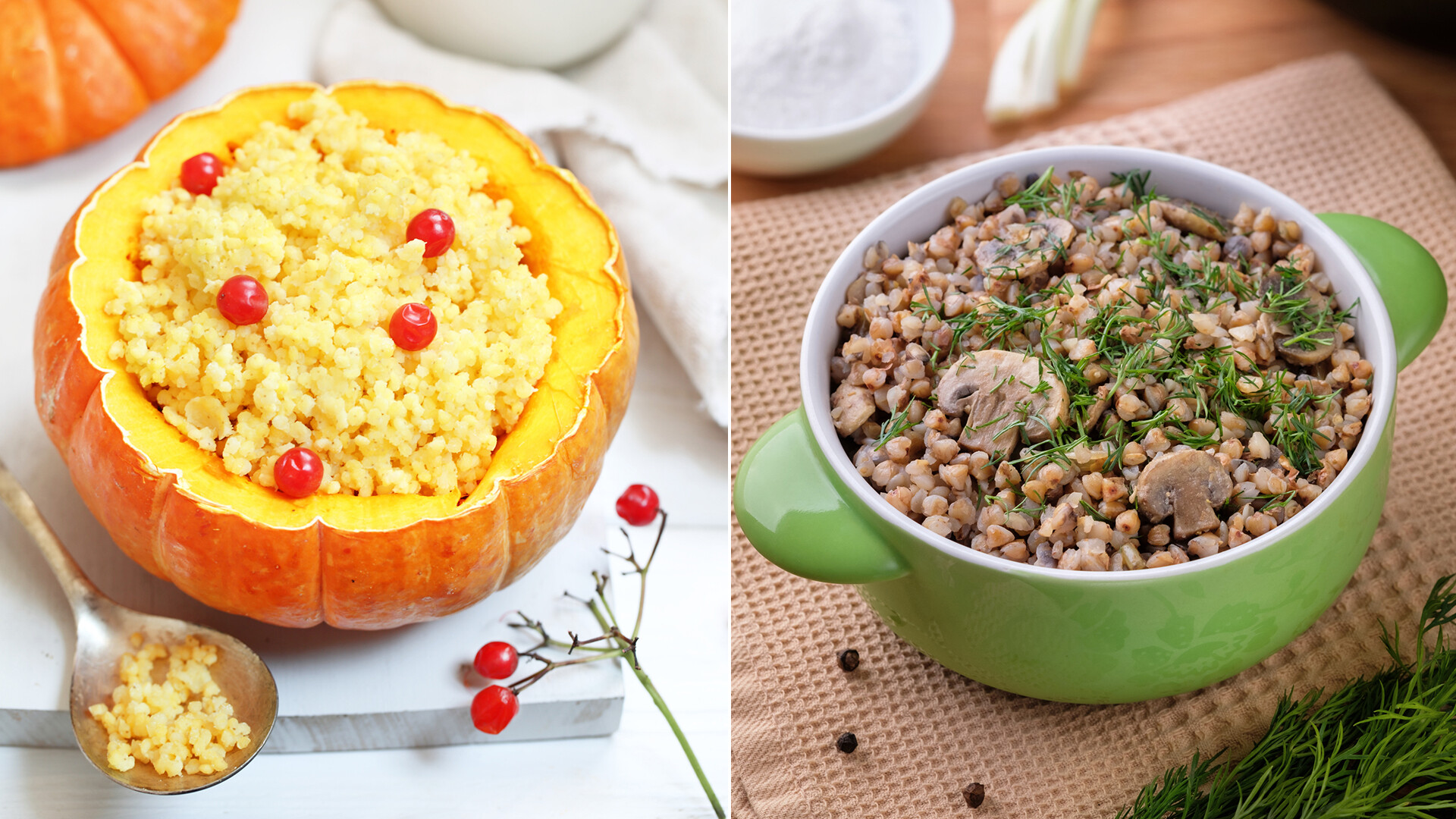
“Shchi and kasha are our staple foods” – the Russian adage goes. It’s no surprise that porridge is present in the everyday diet of many Russians.
According to one study conducted by SberMarket, a leading Russian grocery delivery service, the most popular grains during the first half of 2023 were rice, buckwheat, millet, and unexpectedly, bulgur and peas.
1. Rice
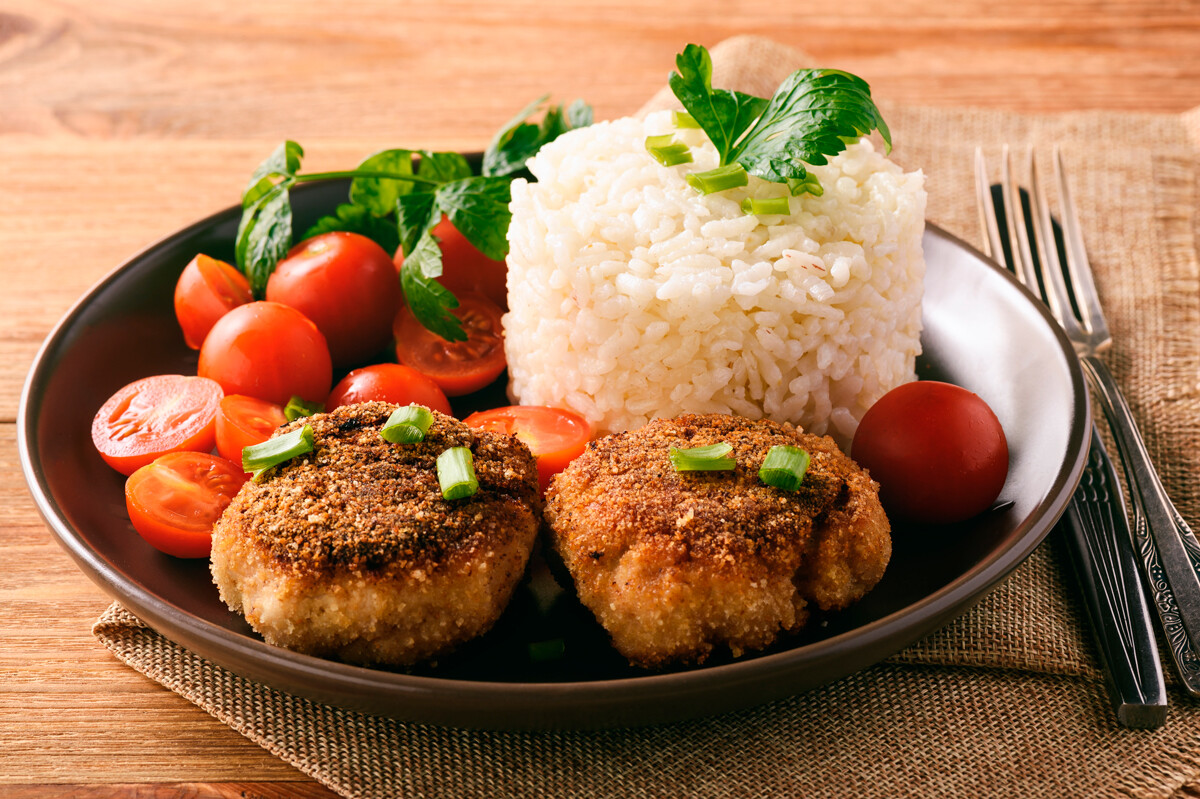 Rice is often enjoyed as a side dish for fish or meat.
Rice is often enjoyed as a side dish for fish or meat.
Rice contains zinc, which can protect and revitalize skin and mucous membranes. However, these qualities can only be found in brown rice. Russians most often buy processed milled white rice, which is merely a source of carbohydrates.
In Russian cuisine, rice is often enjoyed as a side dish for fish, meat, or rissoles. Also, it’s added to soups, ragouts, and casseroles. Rice with egg and greens is a popular stuffing for pirozhki.
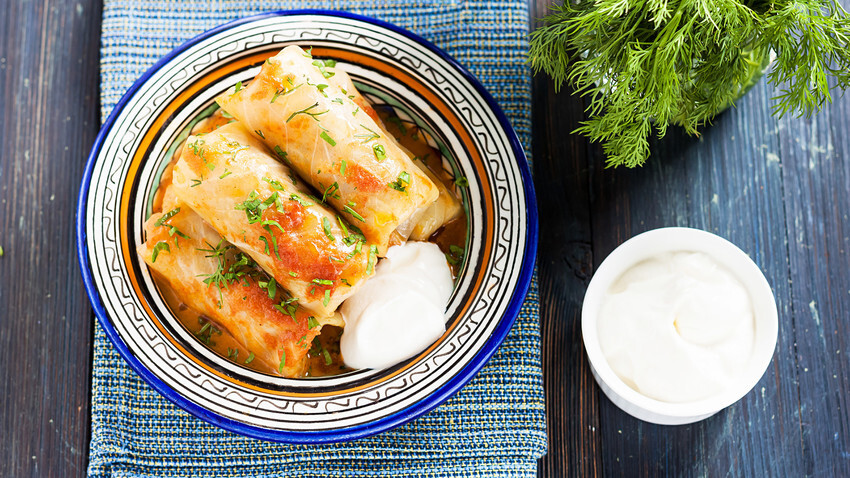 Cabbage rolls.
Cabbage rolls.
Cabbage rolls are also made with it – the stuffing made of meat, rice, and vegetables is rolled in cabbage leaves. Sometimes rice is added to fish salads – for example, to crab meat salad and cod liver salad.
We have to separately mention plov – an eastern cuisine dish. This is a hearty and aromatic dish, where rice is cooked with meat (most often beef or lamb), onions, carrots, and spices.
2. Buckwheat
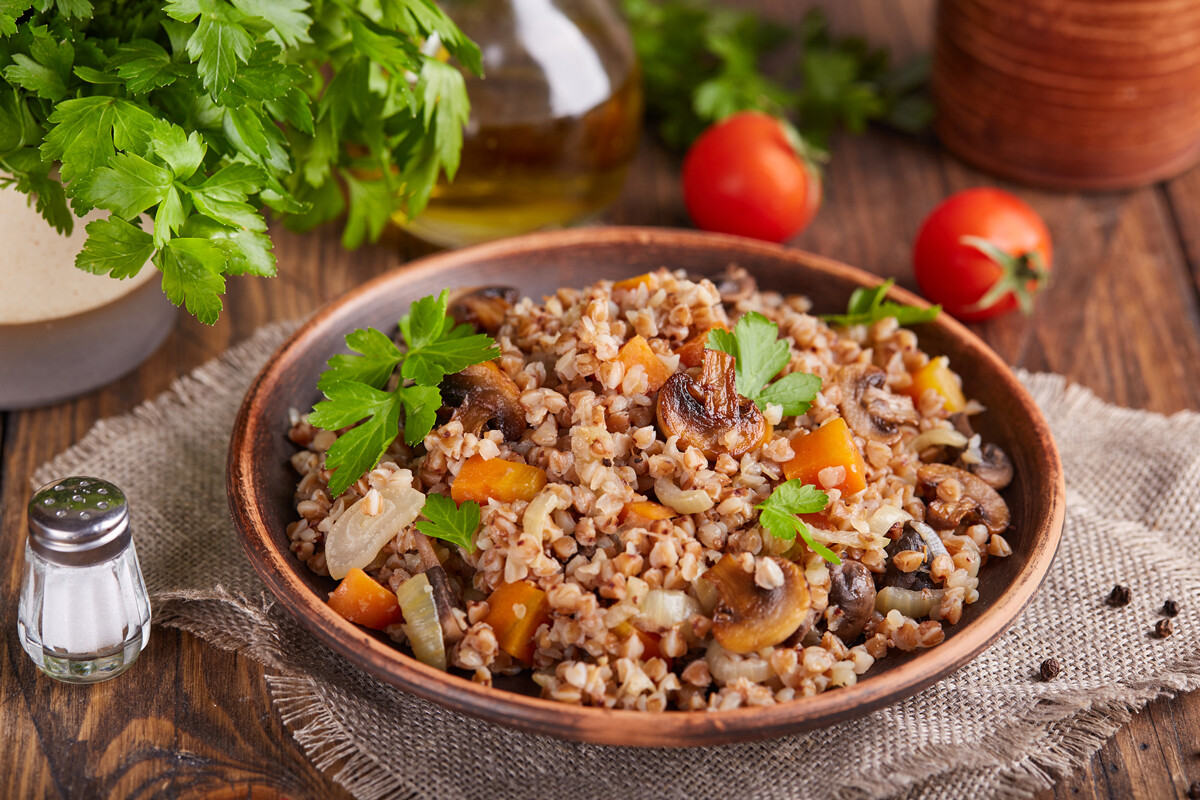 Buckwheat porridge with mushrooms.
Buckwheat porridge with mushrooms.
Buckwheat contains vegetable protein, slow-release carbohydrates, and antioxidants that help to put a brake on the body's natural aging process. Coarse fiber, which buckwheat is rich in, removes excess levels of cholesterol and lowers the risk of developing diabetes.
Cooked with water or milk, buckwheat porridge is one of the most popular side dishes in Russian cuisine. One favorite dish is combining buckwheat porridge with mushrooms. It’s said that Emperor Nicholas II often ate such porridge, which was prepared according to a special recipe, almost every day.
Boiled buckwheat is used as stuffing for pirozhki or pelmeni (kundiumy). It’s added to rissoles, oladyi, and bliny.
3. Millet
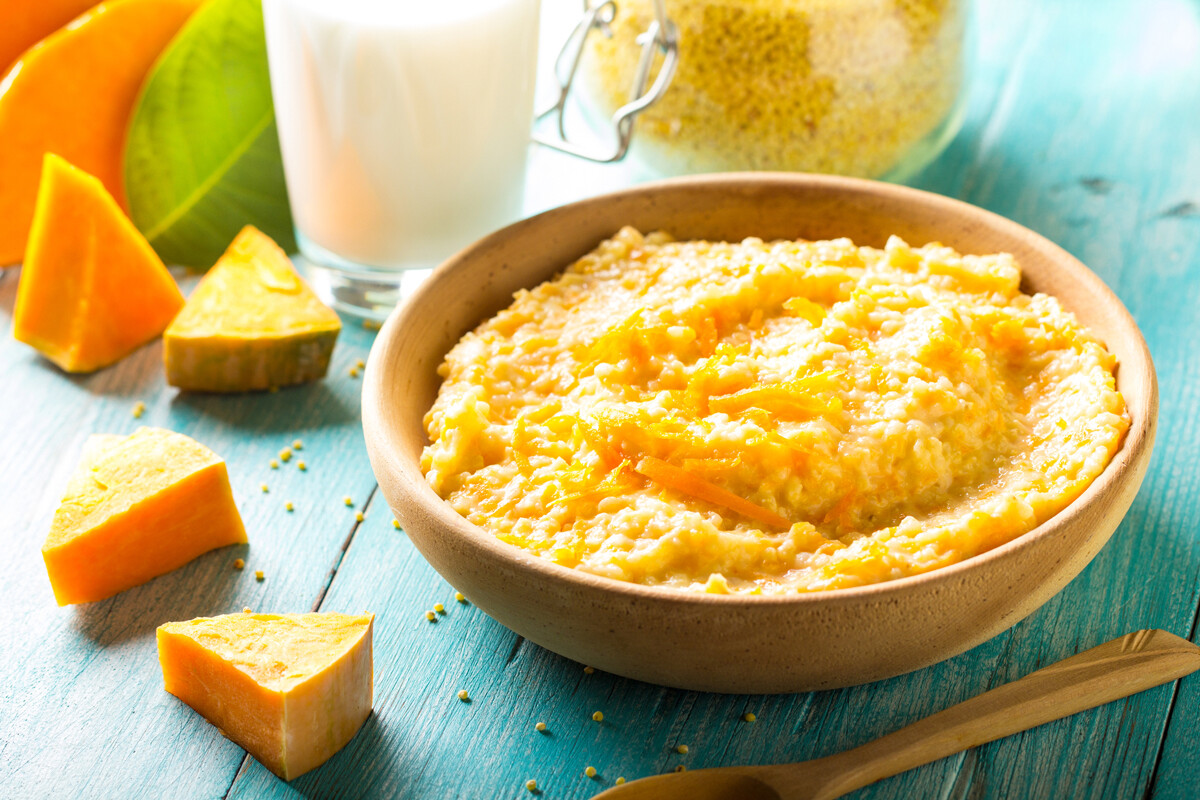 Millet porridge with pumpkin.
Millet porridge with pumpkin.
Millet grain comes from proso millet. It’s one of the main sources of vegetable proteins and carbohydrates, and it contains micronutrients that are necessary for the body’s proper functioning.
Millet is often used for millet porridge that’s cooked with water or milk. It’s served with butter, sour cream, sugar, or fruit. A dish that’s often prepared in the autumn is millet porridge with pumpkin.
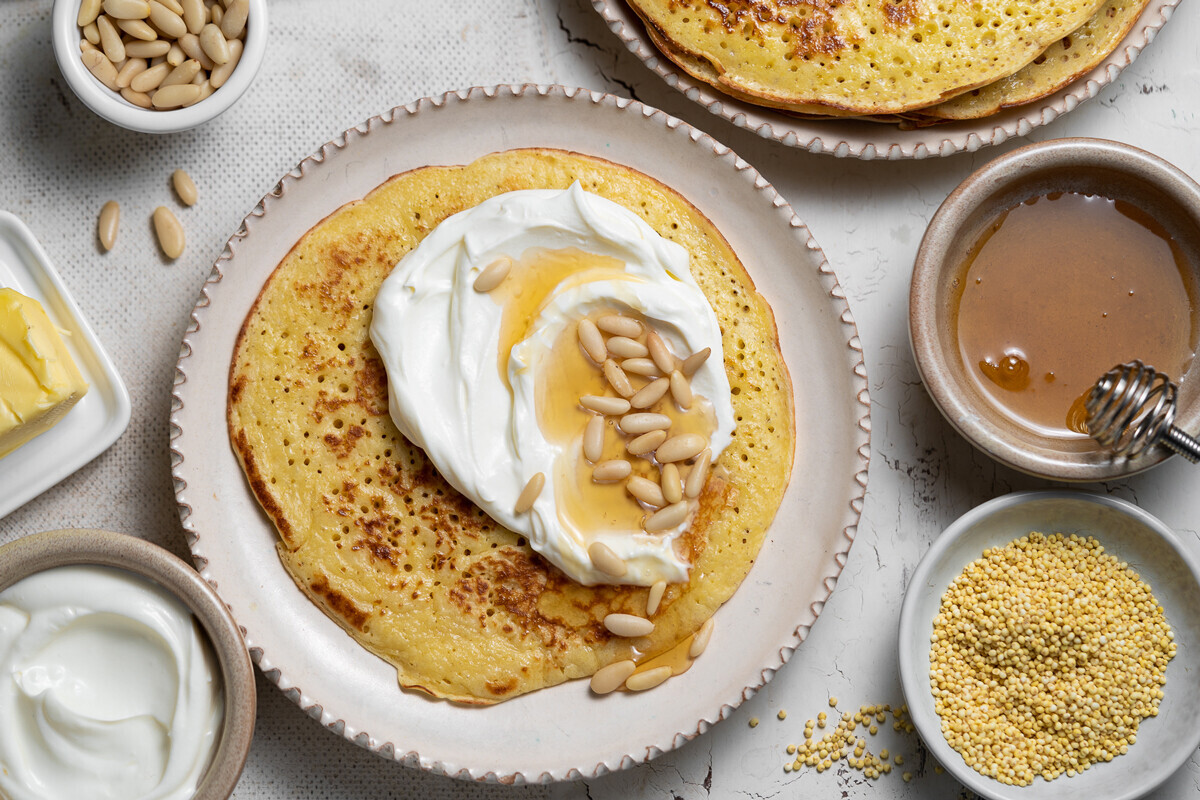 Millet pancakes from Russia’s region of Mordovia.
Millet pancakes from Russia’s region of Mordovia.
Millet is added to rissoles and soups. Bliny are also made from ground millet.
4. Bulgur
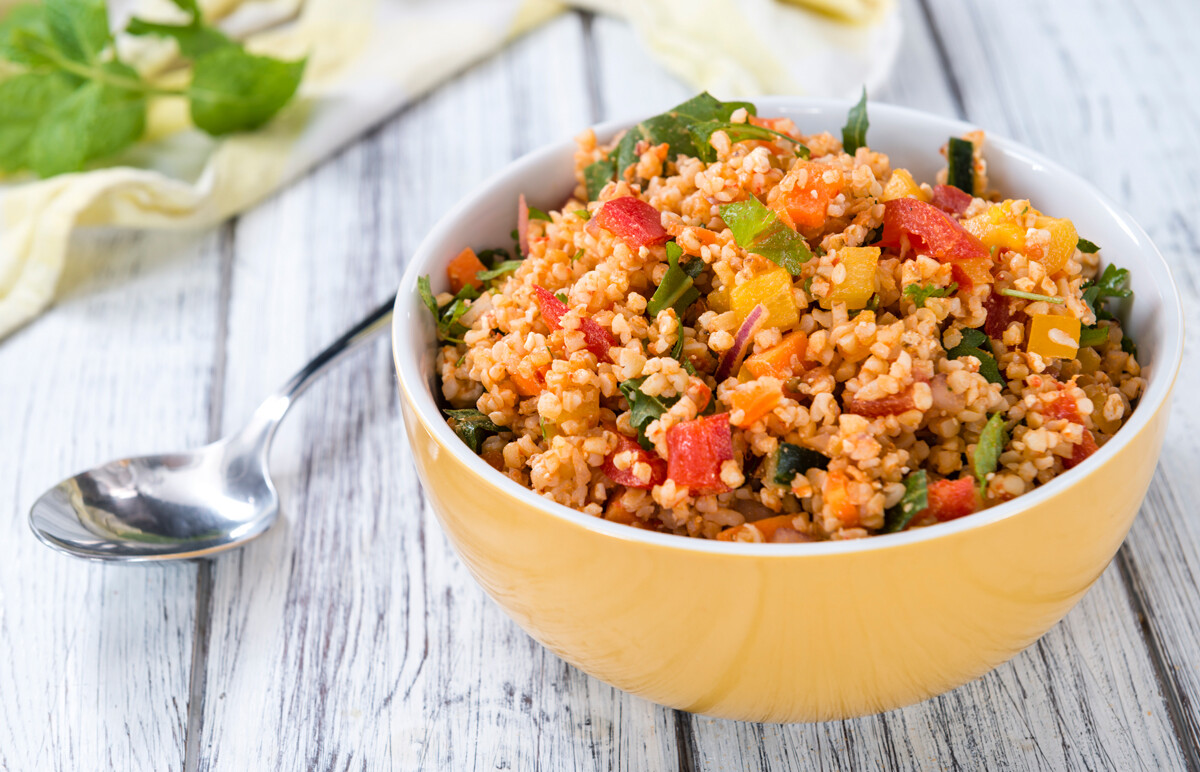 Bulgur porridge with vegetables.
Bulgur porridge with vegetables.
Bulgur is a grain from durum wheat. Wheat grains are soaked, steamed, and dried; then they’re separated from their husks and cracked. As a result, you get bulgur.
It’s especially popular in the countries of the Middle East and Central Asia. In Russia, it has also been known for a long time, especially in the Caucasus region and in the south of the country. Since 2015, the consumption of bulgur in Russia has risen significantly. Food and health experts and marketing specialists also drive the growing interest in bulgur; it’s recommended for losing weight and for vegetarians.
As far as its nutritional properties, bulgur is distinguished by high content of fiber, protein, potassium, iron, as well as its low glycemic index and low calorie content. Thanks to this, bulgur can be recommended for children’s diets and as dietary food.
It’s used to cook porridge, as well as plov; and it’s also added to salads and soups.
5. Peas
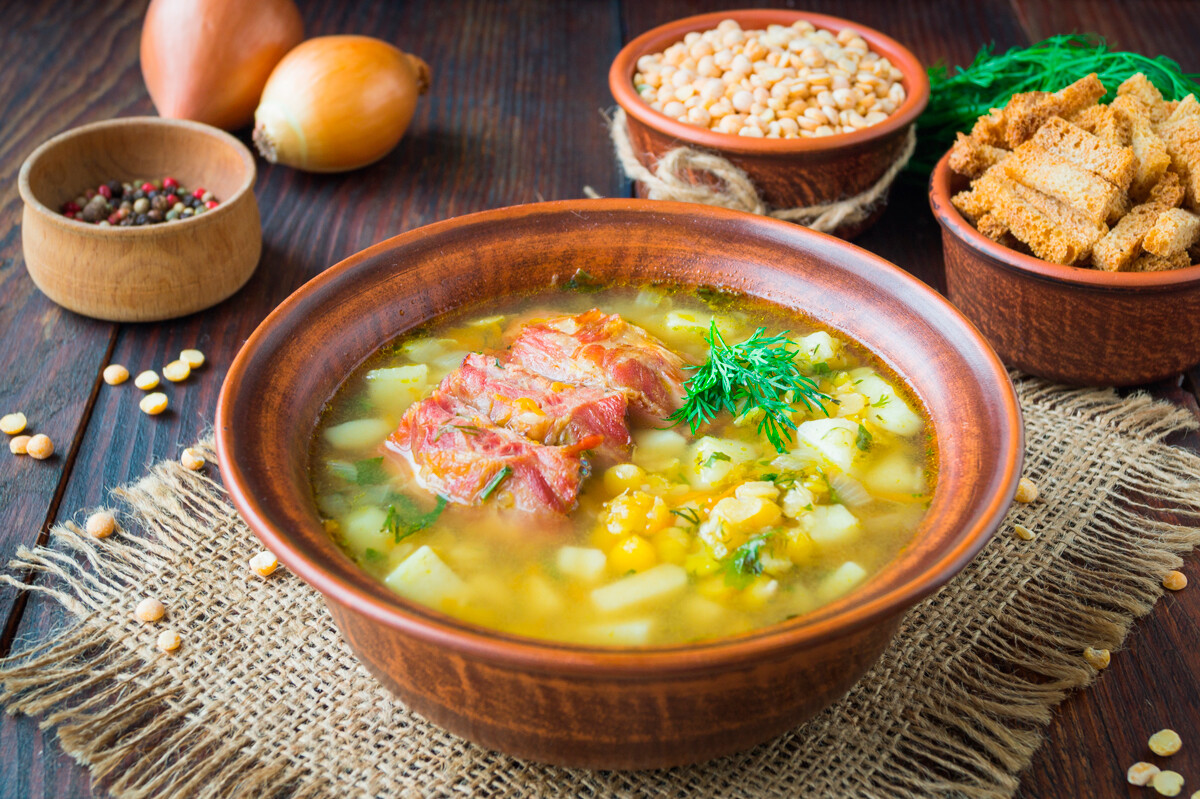 Pea soup with ribs.
Pea soup with ribs.
Milled peas is a grain made from legume seeds. Peas are high in protein – up to 23% - and also contain iron, phosphorus and calcium, not to mention vitamins B, all the E vitamins and beta carotene.
Peas are first soaked, then boiled for no less than an hour, during which they greatly increase in volume. Usually, peas are key ingredients in soups and porridges; but sometimes they’re used to make bliny and pirozhki.
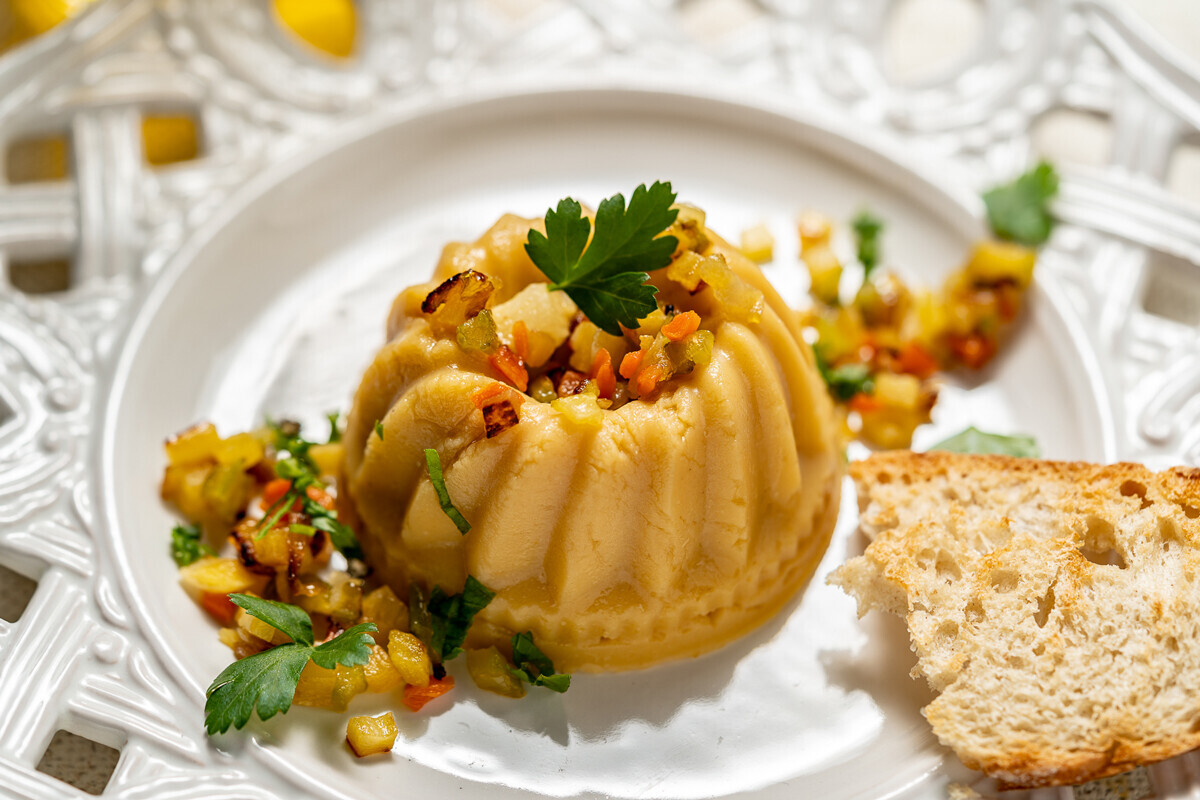 Old Russian snack, “peas kolodkoy”, aka “pea pudding”.
Old Russian snack, “peas kolodkoy”, aka “pea pudding”.
What other grains do Russians often use?
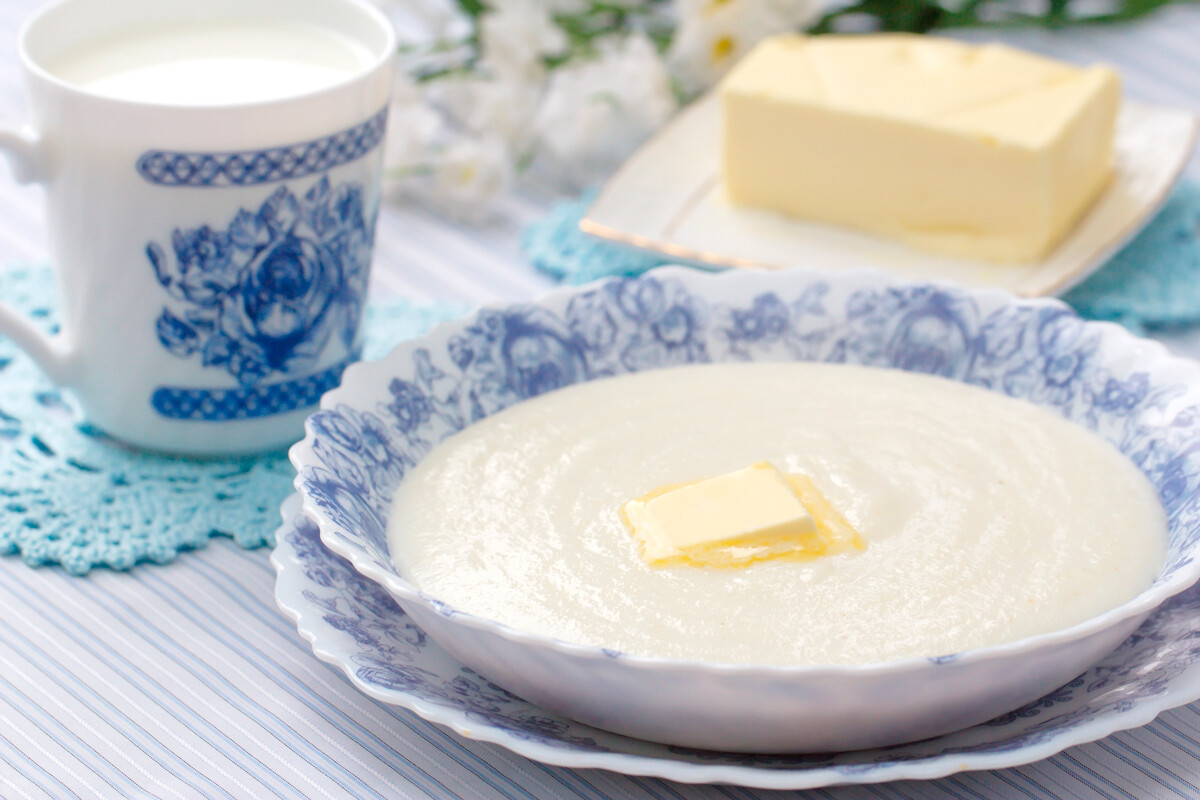 Breakfast semolina porridge.
Breakfast semolina porridge.
In Russian cuisine dishes made from semolina, corn grits, oats, and pearl barley are also very popular. For example, a milk-based porridge is cooked with semolina, without which it’s impossible to imagine your typical menu in Russian kindergartens. Also, any self-respecting and resourceful hostess knows how to make a tasty treat from semolina – ‘mannik’ pie.
Porridges, bread, and flatbread are made from corn grits. The most frequent use of oats is in porridges, but cookies, kissels, and bread can also be prepared with them. Also, you can add it to yogurts. Pearl barley is added to soups, rassolniks, and rissoles.
READ MORE: How to make a healthy and mouth-watering paste created by a Soviet cardiologist (RECIPE)

